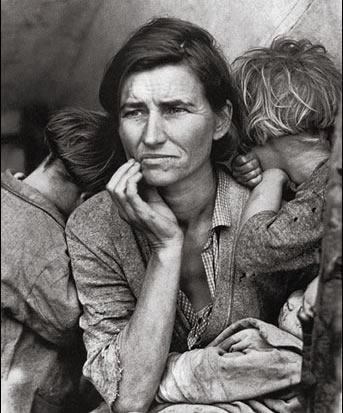On Class and Race/Sex

The most recent issue of the London Review of Books includes a thought-provoking cover story by the writer and academic Walter Benn Michaels. The essential argument of “What Matters” is that, while the United States has made some progress in the last forty years in matters of sexual and racial equality, it has remained virtually unchanged when it comes to class inequality.
No group dedicated to ending economic inequality would be thinking today about declaring victory and going home. In 1969, the top quintile of American wage-earners made 43 per cent of all the money earned in the US; the bottom quintile made 4.1 per cent. In 2007, the top quintile made 49.7 per cent; the bottom quintile 3.4. And while this inequality is both raced and gendered, it’s less so than you might think. (…)
An obvious question, then, is how we are to understand the fact that we’ve made so much progress in some areas while going backwards in others. And an almost equally obvious answer is that the areas in which we’ve made progress have been those which are in fundamental accord with the deepest values of neoliberalism, and the one where we haven’t isn’t. We can put the point more directly by observing that increasing tolerance of economic inequality and increasing intolerance of racism, sexism and homophobia – of discrimination as such – are fundamental characteristics of neoliberalism. Hence the extraordinary advances in the battle against discrimination, and hence also its limits as a contribution to any left-wing politics. The increased inequalities of neoliberalism were not caused by racism and sexism and won’t be cured by – they aren’t even addressed by – anti-racism or anti-sexism. (…)
American universities are exemplary here: they are less racist and sexist than they were 40 years ago and at the same time more elitist. The one serves as an alibi for the other: when you ask them for more equality, what they give you is more diversity.
I found the article to be refreshing; I’ve always thought that class is a huge taboo in the United States. It’s rarely ever discussed, and when it is, it’s usually in terms of its interaction with race. But I also think Michaels overstates his points considerably. Take, for instance, the case of the recent arrest of Henry Louis Gates, which Michaels describes thus:
The recent furore over the arrest for ‘disorderly conduct’ of Henry Louis Gates helps make this clear. Gates, as one of his Harvard colleagues said, is ‘a famous, wealthy and important black man’, a point Gates himself tried to make to the arresting officer – the way he put it was: ‘You don’t know who you’re messing with.’ But, despite the helpful hint, the cop failed to recognise an essential truth about neoliberal America: it’s no longer enough to kowtow to rich white people; now you have to kowtow to rich black people too. The problem, as a sympathetic writer in the Guardian put it, is that ‘Gates’s race snuffed out his class status,’ or as Gates said to the New York Times, ‘I can’t wear my Harvard gown everywhere.’ In the bad old days this situation almost never came up – cops could confidently treat all black people, indeed, all people of colour, the way they traditionally treated poor white people. But now that we’ve made some real progress towards integrating our elites, you need to step back and take the time to figure out ‘who you’re messing with’. You need to make sure that nobody’s class status is snuffed out by his race.
Michaels’ assertion that “in the bad old days…cops could confidently treat all black people, indeed, all people of color, the way they traditionally treated poor white people” is simply inaccurate. All other things being equal (which of course they never are, but bear with me for the sake of the argument), race does play a role in the way in which cops treat people. And you don’t need to take my word for it; just look at statistics emanating from police departments in cities like Los Angeles. If a poor white man drove a Rolls Royce in Beverly Hills, he would not necessarily be stopped, while a rich black man might, as famously happened to the lawyer Johnnie Cochran in 1979. The fact remains that racism does play a role that cannot be entirely explained away by an appeal to class. Still, I think the article is interesting, because it explains why the focus on race and sex at the expense of class legitimates disparities and perpetuates prevailing power structures.

